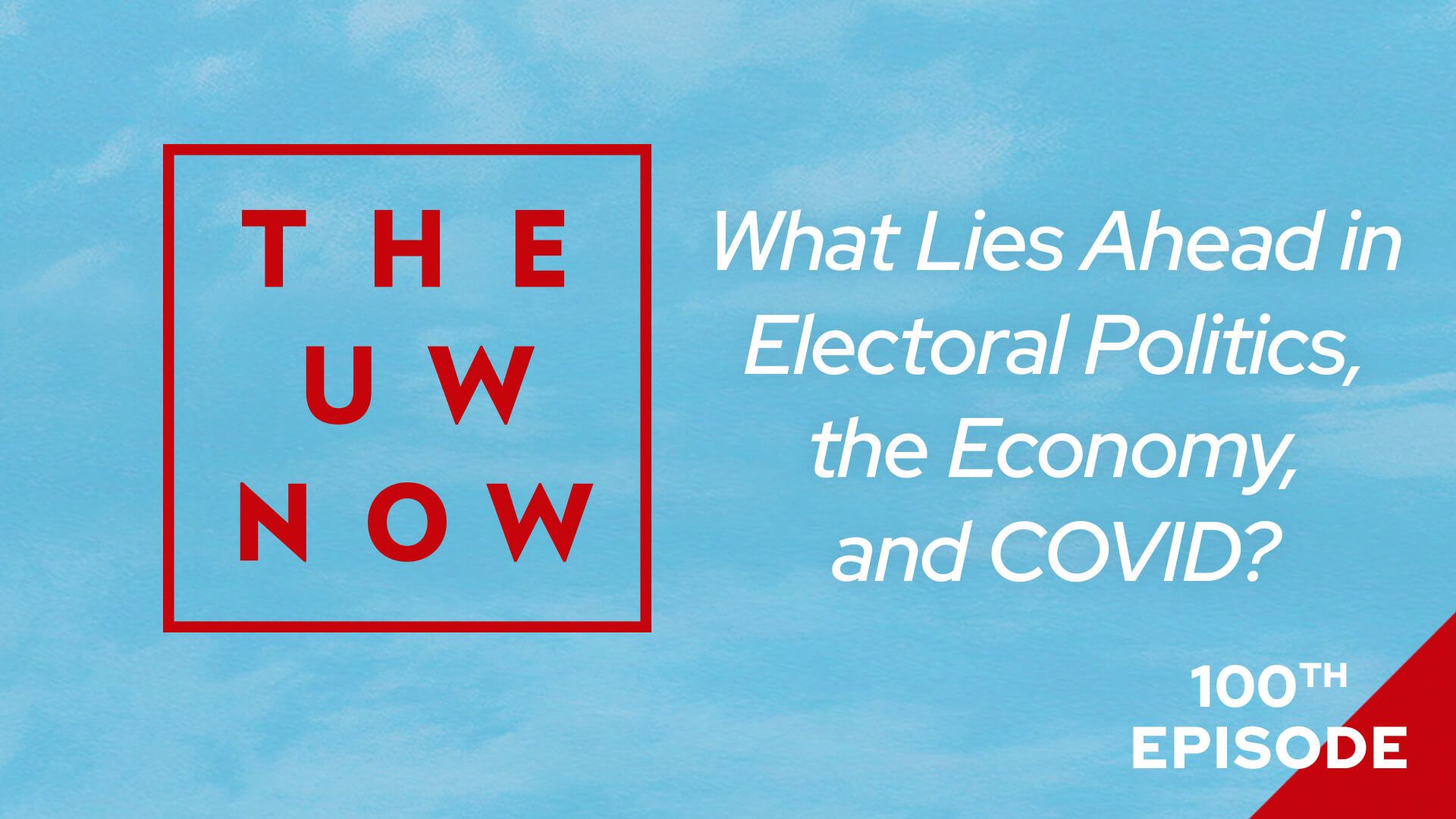On March 31, 2020, the world was mired in confusion.
In the previous two weeks, UW–Madison had changed all classes from in-person to virtual. The Big Ten and then NCAA basketball tournaments were canceled. Wisconsin’s governor had asked nonessential businesses to close.
It was only a month since the first American had died of COVID-19.
That night, The UW Now Livestream ran its first episode, with host Mike Knetter, CEO of the Wisconsin Foundation and Alumni Association, introducing Nasia Safdar MS’02, PhD’09, medical director of infection control at UW Hospital and Clinics and the physician who had treated the UW’s first COVID patient. Over the following four years, The UW Now Livestream has brought UW experts to the public to discuss and explain the most important issues of the day and help viewers separate valid information from noise, falsehood, and exaggeration.
On August 13, 2024, Knetter will host the livestream's 100th livestream. Here are a few of the things we’ve learned from the first 99:
COVID hit hospitals hard. (April 14, 2020)
“I wish I could say that we were overly prepared for this — as a health system, as a community, and as a country — but of course we weren’t,” said Peter Newcomer, then the chief clinical officer at UW Health.
The Marching Band is always popular, even during a pandemic. (April 16, 2020)
“People love the band. People love the football team,” said band director Corey Pompey. “And if it’s related to the University of Wisconsin, people already have buy-in. So our job, or at least my job, is to not mess that up.”
COVID lockdowns and isolation were depressing, but it didn’t have to be. (June 16, 2020)
“Right now, there’s a lot of forces which are inducing fear and anxiety,” said Richard Davidson. “And so the very mechanisms in our brain which produce suffering can also be harnessed for awakening, for flourishing. Neuroplasticity can actually be directed intentionally.”
The future of healthcare is in artificial intelligence. (September 22, 2020)
“I’ve been in technology since 1999,” said Erik Lefkofsky, founder and CEO of the precision medicine company Tempus. “I’ve had a front-row seat watching the internet, the birth of mobile, the birth of social. In my opinion, all of those are going to seem tiny in comparison to the big-data revolution in health care.”
Misinformation can’t be overcome by simply stating facts. (October 6, 2020)
“Throwing facts and telling people why they’re wrong about their behaviors … can in some cases backfire,” said UW professor Dietram Scheufele MA’97, PhD’99, “meaning that people can become more entrenched in their positions because we’re telling people why they’re wrong rather than really engaging with them.”
Luke Fickell believes that culture is the most important part of coaching football. (February 21, 2023)
“The environment that you create within your coaching staff will have a big effect on the environment and the culture which you create amongst your players.”
Addressing the national debt will take political risk and long-term thinking. (August 23, 2023)
“Whenever we talk about Social Security, everyone has in mind my 100-year-old grandmother or my 70-year-old parents,” says Dana Peterson MS’02, an economist with The Conference Board. “They’re not really thinking about the younger generations. They’re just imagining putting grandma and mom and pop out in the street, and it becomes a political discussion almost immediately.”
People like UW–Madison, even if they don’t like “higher education.” (November 28, 2023)
“Pew asked its higher education system question, and they show opinion underwater by 15 percentage points,” said political scientist Ken Goldstein. “I asked about ‘America’s leading research universities,’ and it was plus 40. … People want their kids to get jobs and they want them to be educated and they want them to have good careers and they want that done in an affordable way.”
In spite of public perceptions, college remains a great investment. (January 16, 2024)
“Any which way you slice it,” said economist Ananth Seshadri, “the average internal rate of return numbers are very high from going to college.”
Artificial intelligence can make us more creative. (April 16, 2024)
“What we’re going to see is a change in the very nature of work,” said Patrick McDaniel, professor of computer sciences. “This is a recalculation, a recalibration of our society, perhaps leading to a renaissance. What if we could spend the vast majority of our time in more creative, more inventive, more innovative endeavors? AI is going to drive those changes.”
